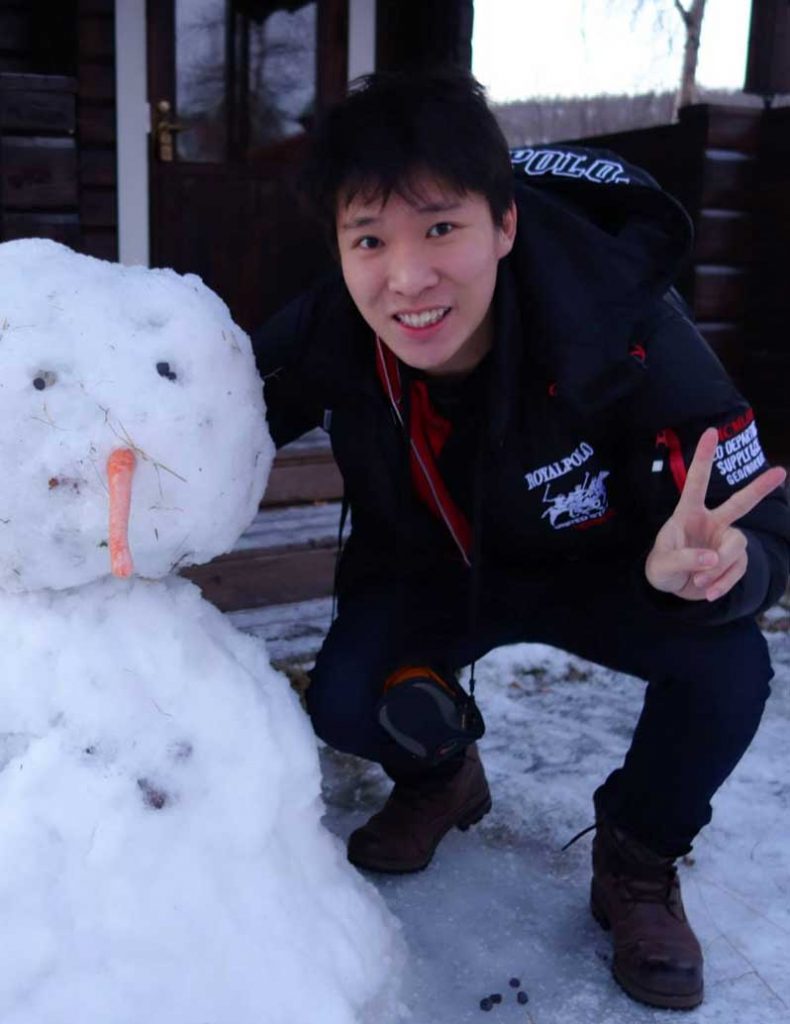Our Alumnus Speaks …
Alumnus Mr Tan Ren Jie [BSc (Hons) 2016] shared about his university education and present undertaking.
Share about your current employment.
I work in ST Electronics (SatCom & Sensors Systems), Space System business group as a capability development (CapDev) engineer. The company mainly offers various remote sensing and geospatial solutions to corporate customers. Together with the CapDev team, we can be seen as the research arm of the company, which develops capabilities of the business. The team has developed a semi-automatic object detection framework to pick out objects like airplanes and palm trees using satellite imagery and a satellite scheduling user-interface where users can input mission requirements and a schedule which meets these mission requirements would then be generated.
How relevant is a physics education to your present work?
There is no direct application of advanced physics modules such as quantum mechanics and general relativity to my present work. However, my physics education has generally cultivated an inquisitive mind in me which is a useful attribute to have as a budding engineer. It has also trained me to take a logical, problem-solving approach in whatever situation I am in. The mathematics I have learned during my course such as Fourier Series, Fourier Transform, Calculus, Linear Algebra and Statistics, has become very handy in my present work. Lastly, picking up scripting languages like Python and MATLAB in my undergraduate days is beneficial to my current undertaking too.
In your opinion, what career opportunities can physics graduates look forward to?
From what I know, majority of the physics graduates end up in the education and academia sectors and also industries that require much analytical skill such as the financial and engineering sectors. In addition to these, there seems to be a rising demand for physics graduates in the field of medicine, where the use of radiography and other healthcare technologies has become increasingly popular and relevant.
As an undergraduate, what were some challenges you faced and how did you manage them?
One of the greatest challenges I faced was during my second year, where I felt the modules suddenly became more challenging as compared to those I had taken in my first year. Another challenge was the process of completing my Final Year Project, which was on Higher Dimensional Black Holes. Thankfully, I was not in this alone most of the time as most of my fellow physics mates were also struggling with the tutorials and comprehension of the lectures. We would have frequent consultations with the professors and tutors and even conducted study meetings to clarify difficult concepts together. For my Final Year Project, I was thankful for the patient guidance and tutorage of my supervisor Dr Kenneth Hong. I believe it is important to stay positive and always maintain an overall view of the concepts while identifying the sub-concepts which need clarifications. It is also crucial not to get too involved and subsequently be drowned in the mathematics.
What do you think will make an undergraduate journey more meaningful besides the pursuit of academic excellence?
I would highly recommend that undergraduates stay in a Hall of Residence so as to experience other aspects of the university life. Joining committees in the Faculty of Science will allow undergraduates to forge close friendships with fellow faculty members from other majors. Do UROPS or take up UPIP to get a feel of working in a research environment or industry. The Student Exchange or NUS Overseas Colleges Programme is another great avenue which provides undergraduates the chance to peek at life at overseas universities or start-ups.
Finally, any advice to give to your physics juniors?
Stay hungry, stay foolish and always be gritty!

